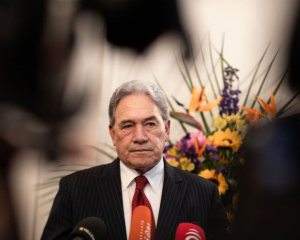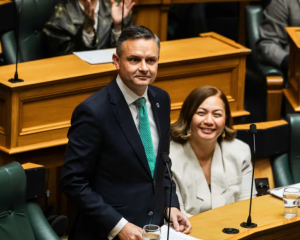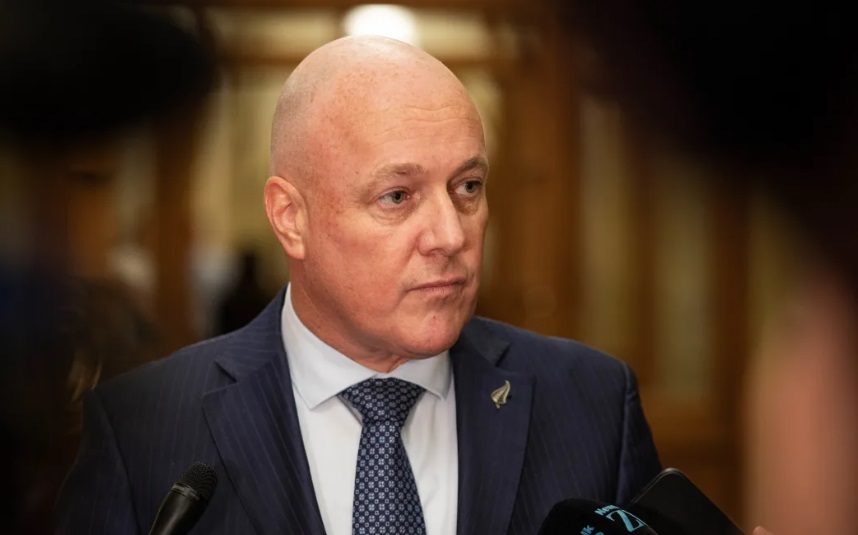
But opposition parties say the list pointless and hollow.
Luxon last month celebrated the fulfilment of all 49 tasks on his government's initial to-do list, boasting a clean sweep, though a closer analysis delivered a more ambiguous report card.
The new "action plan" - published on Tuesday - includes 36 bullet points to be achieved by June 30, and, like its predecessor, contains a mix of concrete tasks and more ambiguous easily achievable objectives.
While 100-day plans have been utilised by numerous former governments, the notion of an ongoing public quarterly programme was much less common but in keeping with Luxon's self-professed CEO-style.
"Having a clear plan with specific actions and timeframes for delivery creates momentum and drives focus," Luxon said in a statement.
"New Zealanders expect and deserve delivery from their government, and that is exactly what they are getting from us."
The number one job is "deliver a budget that reduces wasteful spending while investing in frontline services like health, education and police", set down for May 30.
That is followed by commitments to pass laws delivering personal income tax relief and the FamilyBoost childcare tax credit outlined last week.
A Regional Infrastructure Fund will also be established within the quarter, though the amount of funding to be allocated is not specified. New Zealand First secured the fund in its coalition agreement with National to the tune of $1.2 billion over the three-year term.
A new school Attendance Action Plan will be launched, presumably by Associate Education Minister David Seymour, who has responsibility for addressing truancy and recently mused about fining more parents whose children are frequently absent.
Twelve of the tasks require the coalition only "take decisions" on various policies or promises, meaning some could arguably have already been delivered. They include taking decisions on the return of Three Strikes, tighter controls on youth vaping, and stronger teacher training.
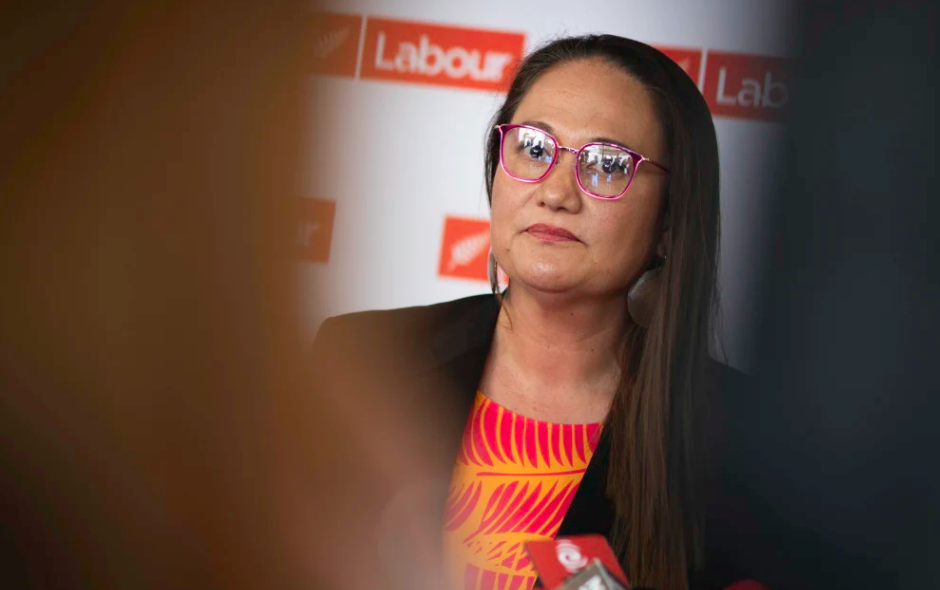
Action plan pointless and hollow, say Labour and Greens
Opposition parties say the coalition's new action plan is unambitious, hollow, and does nothing for New Zealanders' immediate needs.
While plans for a new government's first 100 days have become more common, a quarterly approach is unusual - and Labour Deputy Leader Carmel Sepuloni told RNZ it appeared to be trying to capitalise on Luxon's former experience as a chief executive.
"Putting out points like this and trying to guise it as some chief executive way of running the country is kind of pointless when there's not much in it.
"Some of the commitments are just business as usual including delivering a Budget in May and finalising the GPS on Land Transport ... I think half of the commitments are to take policy decisions, commission a study, or start a review.
"The Prime Minister is approaching running the country like he's the CEO of an organisation, but as we've said a number of times: A country is not a business."
She believed it was not ambitious enough to tackle the real challenges New Zealanders were facing, including the cost of living.
While Sepuloni acknowledged the government's plan to provide tax cuts in the Budget was an effort aimed at that problem, "the problem with the tax relief, of course, is 'at what cost?'," she asked.
She pointed to the government's decisions to increase minimum wage by just 2 percent, and align benefit increases to the Consumer Price Index (4.7%) rather than net average wage growth (5.3%).
"Our poorest New Zealanders are going to receive less so the government can take money to be able to pay for the tax relief."
Sepuloni said the ACT Party claiming responsibility for half the points in the plan raised questions, too.
"New Zealand First doesn't seem to have much influence at all over what's happening, so it does make us question who is running the country and making the decisions moving forward."
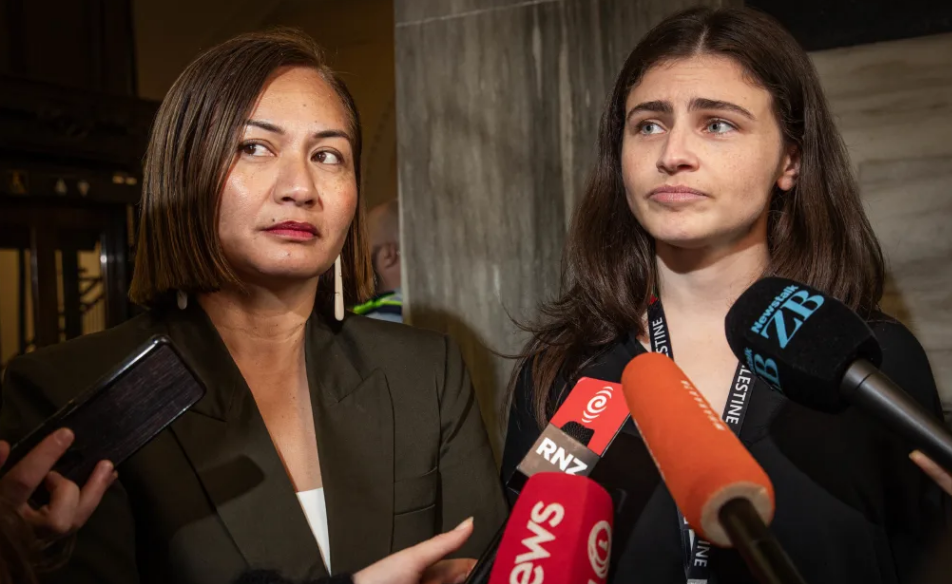
Co-leader Chlöe Swarbrick said it offered no meaningful solutions, and the plan was a "36-point bingo card for environmental destruction and trickle-down economics".
"Christopher Luxon is not in the boardroom anymore. The irony is these bullet points wouldn't even hold up in the corporate world: vague, immeasurable and untethered from reality and evidence," she said.
"When someone shows you who they are, believe them. This government has shown these past six months that its focus is squarely on gutting environmental, climate and social gains in order to line the pockets of a few at the top. They could at least be honest about it."
Co-leader Marama Davidson said the plan showed the government was more concerned with "keeping its wealthy mates happy than building a better future for all".
The vagueness of many of the points "fails to paint over the true colours of this government, which is to prioritise profit over people and planet," she said.
"Climate change is barely mentioned across this plan, and even then, it is to state that the government will be initiating a review of its methane targets that excludes farming related methane, and that it will keep farming out of the Emissions Trading Scheme.
"Looking to reopen an oil refinery in the middle of a climate crisis, rolling back Significant Natural Areas at a time our biodiversity is in decline, leaving agriculture as our most polluting sector to continue as is: this all exposes the fact that this coalition of cowards is too scared to defy the demands of their donors and do what is right and fight for a liveable climate."
The Three Strikes and the "bootcamps" policy had failed in the past and would fail again, she believed.
The govt's full second-quarter action plan:
ECONOMY AND COST OF LIVING
1. Deliver a budget that reduces wasteful spending while investing in frontline services like health, education and police.
2. Legislate for personal income tax relief.
3. Legislate to introduce the FamilyBoost childcare tax credit.
4. Finalise the Government Policy Statement on Land Transport, freezing fuel tax until the end of 2026 and delivering significant investment for transport.
5. Take decisions to implement the Going for Housing Growth plan while making the MDRS optional for councils.
6. Respond to the independent review of Kāinga Ora's financial situation, procurement, and asset management.
7. Introduce legislation to improve the rental market.
8. Release draft plan to ease restrictions on building materials from overseas for public consultation.
9. Take decisions on measures to increase investment in renewable electricity generation.
10. Introduce legislation to amend the RMA to clarify application of National Policy Statement on Freshwater Management in relation to individual consents for freshwater and to extend marine farm consent.
11. Introduce legislation to suspend the requirement on councils to identify and adopt new Significant Natural Areas.
12. Finalise policy to keep agriculture out of the ETS.
13. Commence an independent review of the methane science and targets for consistency with no additional warming from agricultural methane emissions.
14. Reform the CCCFA regime to improve access to credit for home buyers.
15. Initiate the first regulatory sector review.
16. Take decisions on the scope of the extension to the Covid-19 inquiry.
17. Take decisions on reform of the Holidays Act
18. Raise the energy New Zealand brings to key relationships through international engagements, focussing on our traditional partners, the Pacific, and South East and South Asia.
19. Take decisions on the removal of the ban on offshore oil and gas exploration.
20. Commission a study into New Zealand's fuel security, including investigating the feasibility of reopening the Marsden Point Oil Refinery.
21. Establish a Regional Infrastructure Fund.
LAW AND ORDER
22. Progress legislation to improve rehabilitation, reintegration and safety outcomes in the corrections system, including by extending eligibility to offence-based rehabilitation programmes to remand prisoners.
23. Take decisions to restore Three Strikes.
24. Launch a review of the firearms registry.
25. Take decisions on establishing a Youth Serious Offender Category and making Youth Military Academies a standalone sentencing option for the Youth Court.
PUBLIC SERVICES
26. Set targets for improving public service outcomes.
27. Take decisions on the rollout of structured literacy for year 1-3 students, including a phonics check.
28. Take action to strengthen teacher training, including refocusing Professional Learning and Development for teachers on numeracy, literacy and assessment.
29. Take action to develop standardised assessment and regular reporting to parents.
30. Introduce legislation to reintroduce charter schools.
31. Launch an Attendance Action Plan and introduce the first phase of initiatives to lift school attendance.
32. Take decisions to disestablish Te Pūkenga and consult on a proposed replacement model.
33. Issue a new Government Policy Statement on Health, setting the government's priorities for the health system for the next three years.
34. Take decisions to streamline the Medsafe approval process.
35. Take decisions to tighten controls on youth vaping.
36. Take decisions on the repeal of Section 7AA of the Oranga Tamariki Act

